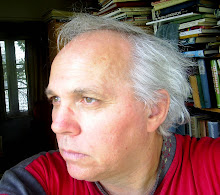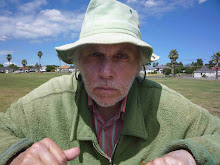
Laura Riding as depicted on the bio by Deborah Baker. Riding was the lover of Robert Graves and an extraordinarily intelligent poet who famously gave up poetry for many years. She also, equally famously or notoriously, attemped suicide: but that act was almost in homage to death and a part of her relentless quest for 'literal truth' (which words and also conventional "poeticalness" obscured from her) but not an act of despair. She then came more under the influence of Gertrude Stein a poet and a friend she admired and published. But she had her own unique style. Her poems range from the excruciatingly obscure to the beautifully lyrical and mysterious. Len Lye of NZ, Jacob Bronowski and others were of her circle....
Whether what I am or was doing has any relevance to these ideas I don’t know. I tried to read a book of Riding’s poetry while reading a biography of her. Now some of her poems are quite beautiful. But then for me she just gets too complex. (One her essays had a direct resulting Empson’s rather sibylline Seven Types of Ambiguity but he denied it, but he clearly got the ideas from her.) And she was obsessed with the ‘necessity’ to die what she called a ‘literal death’ (whatever that means) [most of us struggle to stay alive!!] and so on, and in strange relationships, and thoughts of things that would never occur to me. I am basically a simple person. I see things mostly in literal terms. Death, for me, is a terrible, frightening and endless thing, but Riding seemed to embrace it. That she nearly died by at attempting suicide seems hardly to have concerned her. It was as if she needed death, and, unlike Sylvia Plath, she wasn’t chronically depressed, nor did she was she alone with two children and well…it goes on. It is all too bizarre. But compelling, like the mathematics and electronics I tried but failed to understand, and like learning languages, or trying to understand philosophy or the convolutions of literary theory and criticism and the many ideas in the world, it is perhaps the ‘not knowing’ that pushes me forward, or, at least impels me somewhere.
mongolia, I love you
mongolia
you are mongolia because
you are mongolia
but in your immense
relish of radical
blacksong
thou
rejecteth me
so the sea
so the
cold shoulder could shoulder
sort of gödelled
sort of —
I don’t want truth as such. I can bear some but not too much reality. Truth is too hard. Places such as Mongolia fascinate me. I know very little and I want to keep not knowing very little about such places. But then some of them fascinate me. That I almost certainly never visit them, or know much about them, means I can freely if not clearly imagine what they are like (and I read plays often in preference to seeing them on stage, although as a teenager I saw many many plays, thanks to my father*) – as I constantly imagine the England of my parents. I don’t really want to see the England of today. I have little time for the “real” England.
The places and ideas I have, however confused, are mine, like the song sang by beautiful dark woman in a foreign language; and like the strange countries I will never see, or the mysterious squiggles and symbols indicating great mysteries of science or music or some
........................................................................................................................................................................
.jpg)



No comments:
Post a Comment